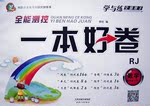题目内容
A BRITISH girl who died after a terminal illness won the right to have her body frozen, the High Court said on Friday. The 14-year-old girl from London had written to a judge______she wanted a chance to “live longer” after suffering from a(n) ______ form of cancer. She had researched and ______ to undergo cryonics(进行人体冷冻), the process through which people are ______ with the hope they will be brought back to life with the help of future medical ______.
“I think being cryo-preserved gives me a chance to be cured and woken up — even in hundreds of years’ time.” The girl launched legal action to request that her mother, who______ supported the child’s ______, be the only person allowed to make decisions about the disposal(处置) of her body. Her parents are divorced and the teenager’s father initially ______ his daughter’s plan.
Judge Peter Jackson ruled in the girl’s favor in October following a private ______ at the High Court of England and Wales in London. The girl was too ______ to attend the hearing and has since died, ______her body being taken to the US and cryogenically frozen. US-based Cryonics issued a(n) ______saying the teenager had arrived at their facility and “packed in dry ice, at 5 p.m. on the 25th of October, about 8 days after ______,be coming its 144th patient.”
coming its 144th patient.”
Jackson said his ______ was based on the best outcome for the girl, not ______ the science itself, in what he ______ as an unprecedented ruling(前所未有的裁决).
By October 6 the girl know her wishes were going to be ______That gave her great _______For the last eight years of her ______the teenager had not had face-to-face contact with her father, who ______ his concerns about the costs and consequences of his daughter being frozen.
1.A. indicating B. doubting C. responding D. explaining
2.A. entire B. complete[ C. rare D. natural
3.A. reacted B. survived C. continued D. decided
4.A. dead B. buried C. frozen D. asleep
5.A. benefit B. change C. progress D. influence
6.A. fully B. heavily C. really D. generally
7.A. opinions B. wishes C. judges D. advice
8.A. carried out B. disagreed with C. insisted on D. turned out
9.A. hearing B. listening C. talk D. speech
10.A. excited B. surprised C. puzzled D. ill
11.A. for B. with C. on D. at
12.A. statement B. movement C. advertisement D. argument
13.A. discussion B. hesitation C. death D. treatment
14.A. prediction B. decision C. opportunity D. ambition
15.A. for B. on C. in D. off
16.A. described B. checked C. imagined D. possessed
17.A. displayed B. finished C. struggled D. followed
18.A. success B. disappointment C. comfort D. equality
19.A. life B. circle C. reality D. pain
20.A. made B. raised C. considered D. preferred
 全能测控一本好卷系列答案
全能测控一本好卷系列答案

 d it again with a fresh mind.
d it again with a fresh mind.